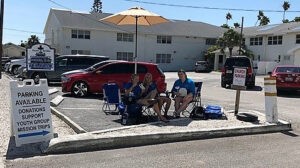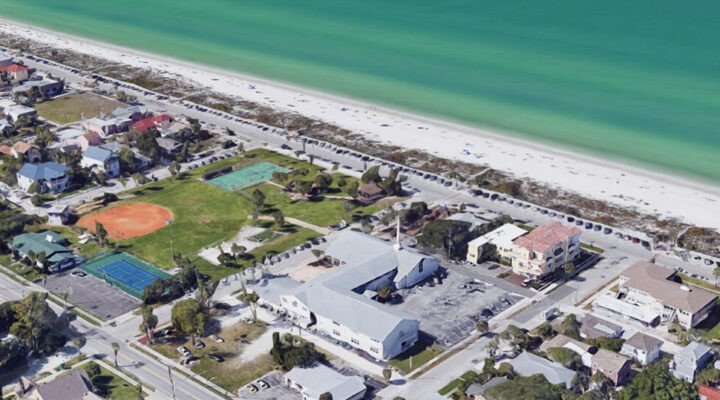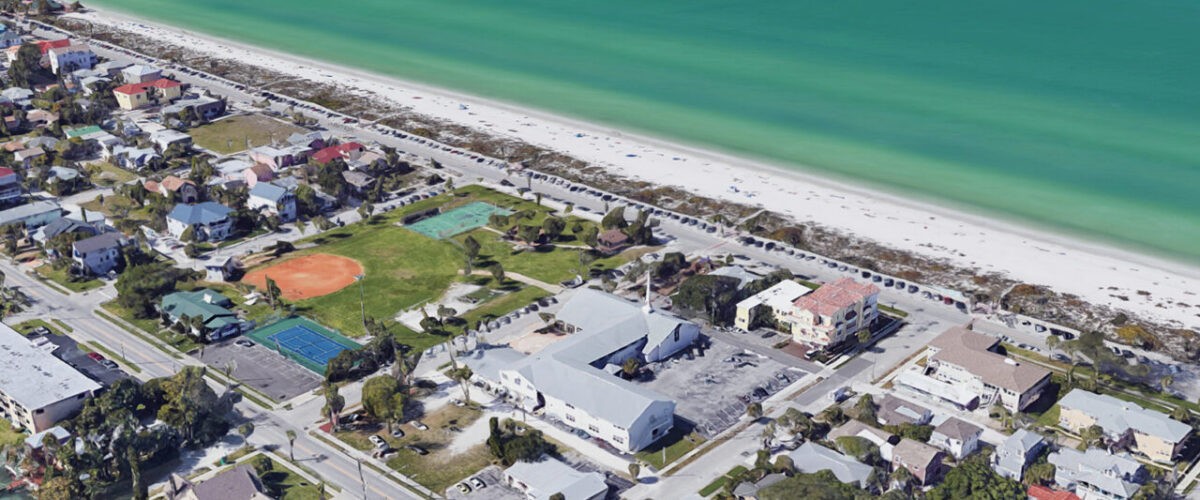Churches battling cities over parking is a tale as old as time. But in the seaside town of St. Pete Beach, Fla., an entirely different version of a parking lot battle has played out, this time with the city ordered to pay a church $250,000 in attorney fees.
Most often, churches get into zoning fights with municipalities when the churches want to build parking garages or expand parking lots. In this case, Pass-A-Grille Beach Community Church already had the parking lot. It was their generosity to the community that got them ticketed by the city.
What the church possesses is a hot commodity in a coastal town: beach-accessible parking.
Pass-A-Grille Beach Community Church is a United Church of Christ congregation that dates to 1914. It derives its name from the beach itself, a name believed to come from a French phrase adopted early on, as the area is the oldest resort on Central Florida’s West Coast.
The church has owned its current property since 1957. That includes a 70-space parking lot located one block from the beach.
 “As part of its ministry to the community, the church has always allowed people to use the parking lot for free when church is not in session in order to access the beach,” according to information provided by the church. “In 2016, the church began accepting free-will donations from those parking in the lot, with the money collected used to fund the church’s youth mission trips. Church youth also distributed spiritual leaflets, prayed with people, and shared their faith with those interested in learning more.”
“As part of its ministry to the community, the church has always allowed people to use the parking lot for free when church is not in session in order to access the beach,” according to information provided by the church. “In 2016, the church began accepting free-will donations from those parking in the lot, with the money collected used to fund the church’s youth mission trips. Church youth also distributed spiritual leaflets, prayed with people, and shared their faith with those interested in learning more.”
Turns out that city officials didn’t like missing out on parking revenue and didn’t like the student evangelizing either. In 2020, the city of St. Pete Beach barred the church from allowing free parking and attempted to restrict the ministries of the church’s youth group.
The city fined the church $1,000 for allowing general public parking in its lot and then levied additional fines of $500 fine every time the church allowed an individual who was not there for “legitimate church purposes” to park in the lot.
The church saw this as a religious liberty challenge and filed suit against the city in August 2020.
At that time, attorney Dan Dalton called the city’s fines punitive actions that singled out Pass-A-Grille Church for discrimination: “St. Pete Beach is using an increasingly common tactic among cities and counties — cowering behind misinterpreted zoning codes — to limit or eliminate the religious freedom of its community members. The Religious Land Use and Institutionalized Persons Act of 2000 broadly protects Pass-A-Grille Church’s right to use its property within the parameters of its spiritual mission, which is clearly the case here.”
The city admitted it had taken no similar actions against any other property owners. The church was the sole target of the city’s restrictions — a clear violation of First Amendment protections against religious discrimination.
Thus, in 2021, a court granted the church an injunction against the city’s restrictions.
Now, a federal court has ordered the city to pay the church’s legal fees of $250,000 that were required to fight the discriminatory policies.
The church was represented by the national religious land use firm Dalton and Tomich.
“This fee award is an example of the financial penalties local governments must pay when they violate the Religious Land Use and Institutionalized Persons Act, which protects the church’s right to use its parking lot in accordance with its religious mission to show biblically based hospitality,” said attorney Noel W. Sterett.
“This case is yet another reminder of how RLUIPA helps level the playing field for religious institutions and assemblies in the land use and zoning context,” Sterett said.
Related articles:
With fear, everything becomes a potential weapon, even church bells | Opinion by Scott Dickison


